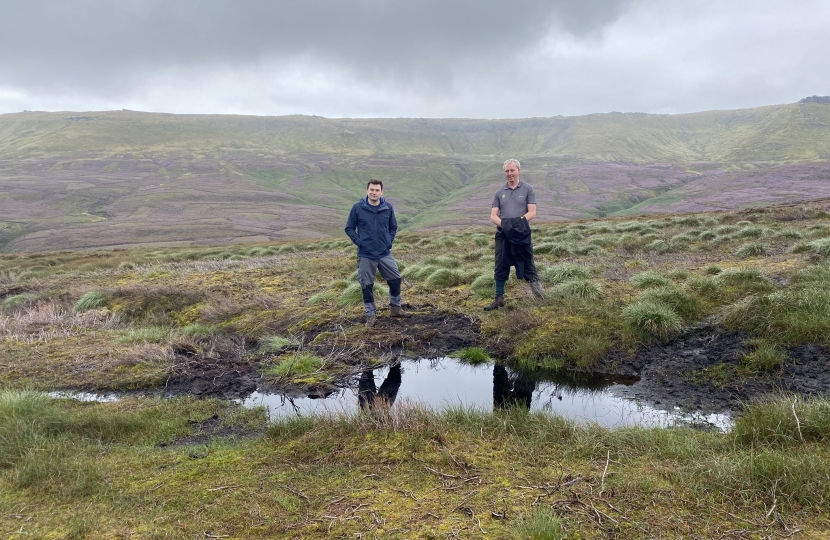
The Moors for the Future partnership have been awarded £935,000 by the Government’s Nature for Climate Peatland Grant Scheme to begin preparation to restore up to 14,310 hectares of blanket bog in the south-west Pennines and the Dark Peak.
The project will develop detailed restoration proposals for 63 sites in total. This work will be led by the Peak District National Park Authority, in collaboration with regional water utilities, wildlife trusts and the Ministry of Defence.
Currently, only 13 per cent of peatland in England is in a near-natural state. Wet, healthy peatlands act as long-term carbon stores, helping to reduce carbon emissions. Peatland also improves water quality and reduces the risk of flooding.
Wet, healthy peatland can act as a nature-based solution to tackle climate change, as peat soils absorb and trap carbon dioxide (CO2). In regulating the flow of ground water, peatland also reduces the risks of flooding and drought.
Dry, neglected bogs, however, are a large source of global carbon emissions as CO2 oxidises and is released into the atmosphere.
The £50 million Nature for Climate Fund aims to help restore 35,000 hectares of peatland by 2025.
Local MP Robert Largan has previously campaigned to increase the funding for peatland restoration and secured a significant rise in funding in the Emergency Budget in February 2020.
In November, Mr Largan also introduced the Disposable Barbecues Bill to Parliament, which received cross-party support and passed its first reading in Parliament. The Bill would prohibit the use of disposable barbecues on open moorland and give local authorities the power to ban their sale. The Bill was designed to prevent wildfires and raised awareness of the benefits of peatland.
Robert Largan, MP for High Peak, commented:
“This is an issue I care deeply about. In my first question in Parliament, I raised the need to strengthen our environmental protections and protect our peat moors.
“Carbon-capturing peatland is key to our fightback against climate change.
“I very much look forward to seeing the results of Moors for the Future’s work in High Peak, and their progress in restoring this vital natural asset.”




